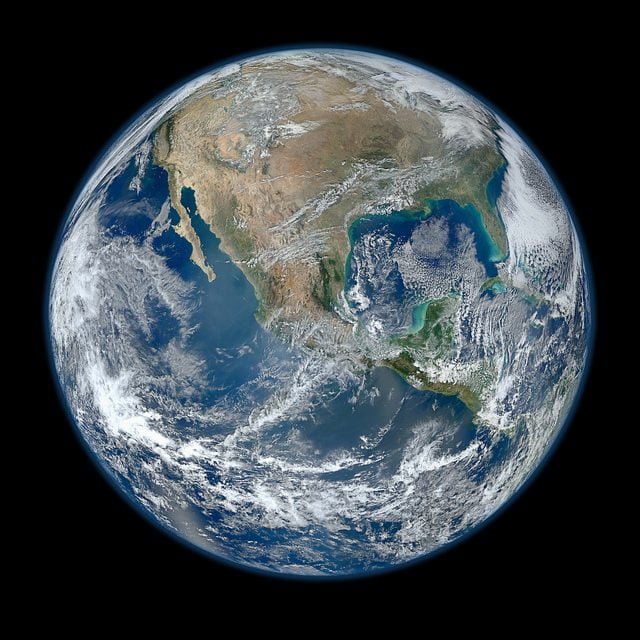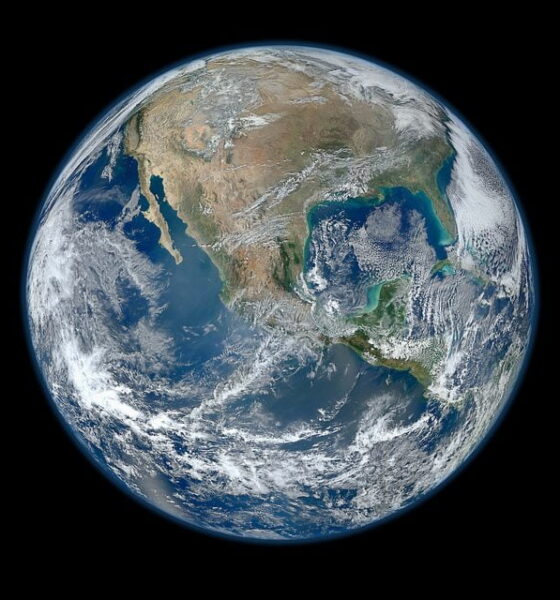

Environment
Earth Overshoot Day: planet is now in ‘ecological deficit’
Today is Earth Overshoot Day, the day after which humanity has exhausted its annual budget of ecological resources, according to data from the Global Footprint Network thinktank.
The annual landmark means that the Earth is, for the rest of the year, ‘overdrawn’ in a state of ecological deficit, using more resources than can be sustainably maintained.
The biggest contributor to this overspending is greenhouse gas emissions, which are being pumped into the atmosphere faster than they can be naturally removed. Other factors range from exhausted fish stocks to deforested trees.
Earth Overshoot Day has been arriving earlier each year, demonstrating how fast humanity’s consumption is growing.
Last year, it fell on August 20. In 2003, it was September 22. In 1993, it fell on October 21.
According to Global Footprint Network’s calculations, it would take 1.5 Earths to provide enough renewable ecological resources to meet current demand.
But with the global population set to grow to 9 billion by mid-century, a rapidly expanding middle class, and climate change exacerbating resource scarcity, unsustainable demand is expected to grow even further. Some estimates say humanity will need three Earths before mid-century.
“Nature is the foundation of our well-being and our prosperity, but we are using up far too much of the Earth’s finite resources,” commented Marco Lambertini, director general of WWF International.
“For a healthy and bright future for our children, we must preserve the natural capital that is left – and be better stewards of this one precious planet we call home.”
The Global Footprint Network warns that the inaction from world leaders in reducing resource consumption and carbon emissions also risks dire economic consequences.
Some 72% of the global population currently lives in countries that are both ecologically overdrawn and struggling with low income, meaning billions struggle to meet basic needs.
A further 15% live in ecologically overdrawn countries that are – for now – rich enough to mitigate resource scarcity. This includes most western countries.
If these nations do not change their approach, the network warns of severe economic stress.
“The economist Thomas Piketty has shown that the current market economy drives inequalities,” said Mathis Wackernagel, president of Global Footprint Network and the co-creator of the accounting metric used to pinpoint Earth Overshoot Day.
“As increasing natural capital constraints affect our ability to grow our economies, addressing inequality becomes even more challenging. These natural capital constraints could therefore amplify inequalities and strain the fragile global economy further, compounding the problem that Piketty exposed.
“Global overshoot is becoming a defining challenge of the 21st century.”
Photo: NASA Goddard Space Flight Center via Flickr
Further reading:
We need three more planets to sustain human life, says NASA scientist
World Water Day: increased energy usage puts ‘pressure’ on water, says UN
Global Sustainability Institute to map effects of global resource shortages
Towards 9 Billion: humanity is a shared endeavour
Earth Overshoot Day: ‘We can no longer binge on our planet’s finite resources’


 Environment12 months ago
Environment12 months agoAre Polymer Banknotes: an Eco-Friendly Trend or a Groundswell?

 Features11 months ago
Features11 months agoEco-Friendly Cryptocurrencies: Sustainable Investment Choices

 Features12 months ago
Features12 months agoEco-Friendly Crypto Traders Must Find the Right Exchange

 Energy11 months ago
Energy11 months agoThe Growing Role of Solar Panels in Ireland’s Energy Future





























